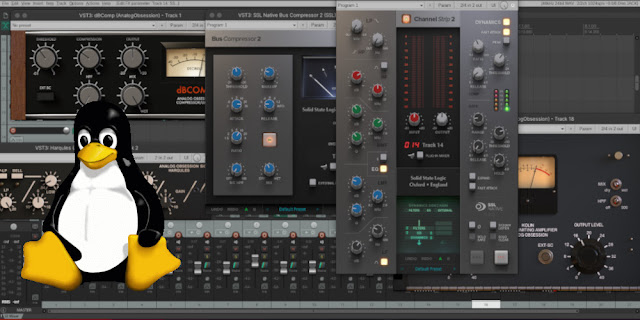Introduction
Audio production is a versatile and creative field that relies heavily on technology. While Windows and macOS have traditionally dominated the landscape, Linux has been steadily gaining traction as a viable platform for professional audio work. In this article, we will explore the benefits of running your audio setup on Linux and why it might be a compelling choice for both newcomers and experienced audio professionals.
1. USB Class Compliant Audio Interfaces
One of the advantages of using Linux for audio production is its excellent support for USB Class Compliant audio interfaces. Many modern audio interfaces are designed to work seamlessly with Linux right out of the box. This means you can plug in your USB audio interface, and it should be recognized and functional without the need for additional drivers or complicated setup. Linux's native support for these interfaces ensures a hassle-free experience for audio professionals.
2. Safety and Security
Linux is renowned for its security features and robustness. Unlike other operating systems, Linux is less susceptible to malware and viruses. This makes it an ideal choice for audio production, where stability and data security are paramount. You can focus on your creative process without the constant worry of security threats.
3. Running Windows Plugins Effortlessly
Linux's compatibility with Windows plugins has come a long way. Thanks to tools like Wine and Yabridge, you can now run your favorite Windows VST and VST3 plugins on Linux with relative ease. This opens up a vast library of audio processing tools and instruments for Linux users, eliminating the need for a separate Windows machine or dual booting.
4. Pipewire: The Swiss Army Knife of Audio Routing
Pipewire is a powerful tool that simplifies audio routing on Linux. It allows you to take any software or hardware input and connect it to any software or hardware output seamlessly. This means you can route audio from programs like YouTube, audio players, streaming software, DAW inputs, and outputs with ease. Pipewire's flexibility makes it a game-changer for audio professionals, enabling complex audio workflows with ease.
5. Lightweight Window Managers
Linux offers a variety of lightweight window managers that can save valuable system resources. These window managers are perfect for audio production setups, as they allow you to allocate more of your system's power to your DAW and audio plugins. This streamlined approach ensures optimal performance, even on less powerful hardware.
6. Real-Time Low Latency Kernels
For those seeking the absolute best audio performance, Linux offers real-time low latency kernels. These specialized kernels prioritize audio processing, reducing latency to a minimum. This is crucial for tasks like recording live instruments or vocals, where any delay can be disruptive. With a low-latency kernel, Linux becomes a top-tier choice for demanding audio projects.
7. Native Linux Support for Professional DAWs
Linux has gained significant traction in the audio industry, with professional studio software like Reaper, Harrison Mixbus, Fairlight's DaVinci Resolve, and Bitwig Studio offering native Linux support. This means you can run these industry-standard DAWs directly on your Linux system without any emulation or compatibility layers. As Linux's popularity continues to grow, more software developers are likely to provide native Linux versions of their products, expanding your choices further.
Conclusion
The question of whether to run your audio setup on Linux is increasingly met with a resounding "yes." Linux has matured into a reliable and flexible platform for audio production. Its support for USB Class Compliant audio interfaces, security features, compatibility with Windows plugins, and tools like Pipewire make it a compelling choice for audio professionals. Additionally, lightweight window managers, real-time low latency kernels, and native support from professional DAWs further solidify Linux's position in the audio production world. Whether you're a seasoned pro or just starting, Linux provides a stable and efficient environment for your creative audio endeavors. Consider giving it a try, and you might discover a new world of possibilities for your music and sound projects.
